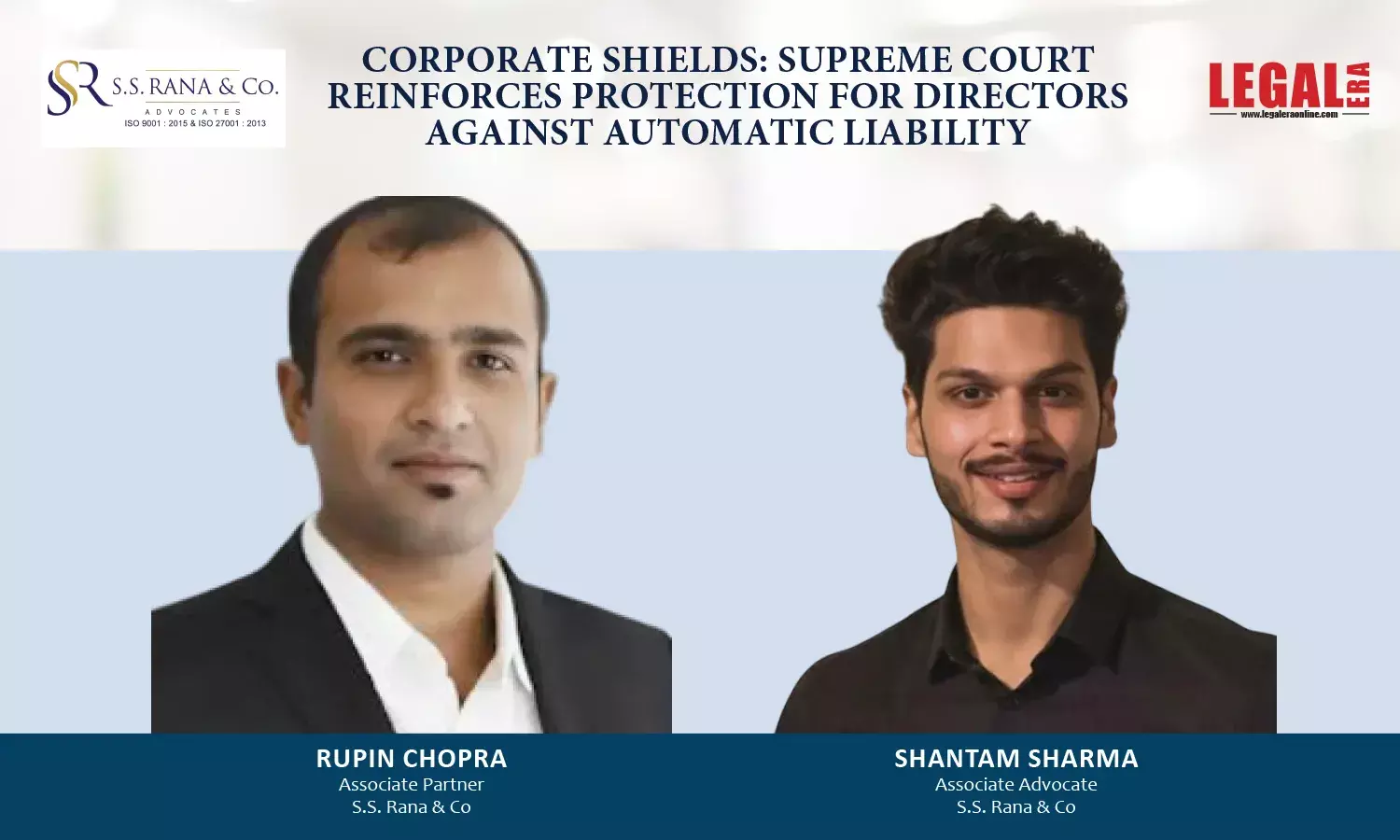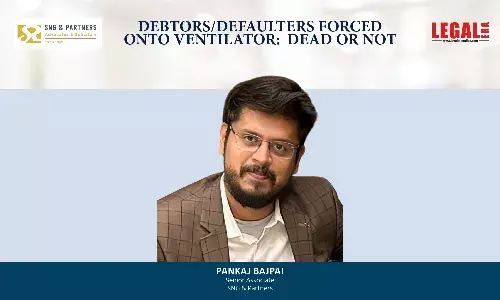Corporate Shields: Supreme Court Reinforces Protection For Directors Against Automatic Liability

Corporate Shields: Supreme Court Reinforces Protection For Directors Against Automatic Liability For businesses, it underscores the need for proactive compliance and governance strategies to navigate India’s evolving regulatory landscape Introduction The relationship between a company and its directors is often misconstrued, particularly in legal proceedings involving corporate...
Corporate Shields: Supreme Court Reinforces Protection For Directors Against Automatic Liability
For businesses, it underscores the need for proactive compliance and governance strategies to navigate India’s evolving regulatory landscape
Introduction
The relationship between a company and its directors is often misconstrued, particularly in legal proceedings involving corporate misconduct. In the recent judgment of Sanjay Dutt & Ors. v. The State of Haryana & Anr., delivered by the Supreme Court on January 2, 2025, the Court reaffirmed that directors cannot be automatically held liable for acts committed by a company unless specific statutory provisions impose such liability or their personal involvement is established.
The judgment not only reinforces established legal principles but also sends a strong message about the need for precise allegations and statutory compliance when prosecuting directors for corporate wrongdoing.
Background: The Doctrine of Separate Corporate Personality
The principle of separate legal personality, established in the landmark case of Salomon v. Salomon & Co. (1897), holds that a company is a distinct legal entity, separate from its directors and shareholders. Indian courts have consistently upheld this doctrine, except where specific statutory provisions or circumstances warrant “lifting the corporate veil.”
This principle ensures that liability for corporate acts remains confined to the company unless a director is directly implicated by statute or personal involvement. The Supreme Court’s judgment in Sanjay Dutt & Ors1. exemplifies this principle, reiterating the need for statutory clarity and evidentiary rigor when attributing liability to directors.
The Judgment: Facts and Findings
The case arose from allegations of illegal tree felling in Gurugram, Haryana, violating Section 4 of the Punjab Land Preservation Act, 1900, punishable under Section 19 of the Act. The appellants, Sanjay Dutt and others, were directors and senior officers of companies allegedly responsible for the act. Despite this, the complaint failed to establish direct involvement or personal liability.
The Supreme Court observed that:
1. No Statutory Basis for Vicarious Liability: The Punjab Land Preservation Act, 1900, does not include provisions for vicarious liability of directors for offences committed by a company.
2. Lack of Specific Allegations: The complaint did not attribute any specific actions to the directors that could establish personal culpability.
3. Faulty Prosecution Strategy: The company itself was not named as a party in the proceedings, undermining the prosecution’s case.
The Court, relying on established precedents, set aside the High Court’s order, quashing the criminal proceedings against the appellants.
Precedents and Legal Reasoning
1. Vicarious Liability: A Statutory Creation
The Court cited Maharashtra State Electricity Distribution Co. Ltd. v. Datar Switchgear Ltd. (2010) 10 SCC 4792, emphasizing that vicarious liability in criminal law is a statutory creation. It stated:
“Wherever by a legal fiction the principle of vicarious liability is attracted, it has to be specifically provided in the statute concerned.”
This principle was further supported by S.K. Alagh v. State of Uttar Pradesh (2008) 5 SCC 6623, wherein the Court held:
“In the absence of any statutory provision, a director of a company cannot be held vicariously liable for offences committed by the company.”
2. Presumption of Innocence and the Need for Specific Allegations
The Court reiterated that directors can only be held liable if their personal involvement in the alleged offence is explicitly stated in the complaint. It observed:
“There is no presumption that every officer of a company knows about the transaction in question.”
Citing its earlier ruling in Sunil Bharti Mittal v. Central Bureau of Investigation (2015) 4 SCC 6094, the Court underscored that merely holding a corporate position does not render an individual liable for corporate acts.
3. Importance of the Complainant’s Role
The judgment stressed the complainant’s duty to establish a prima facie case with specific allegations. The Court observed that the allegations against the directors in this case were “absolutely vague” and failed to satisfy the standards required to prosecute directors for corporate misconduct.
SSR Takeaways
1. Safeguarding Directors Against Harassment
The ruling shields directors from unwarranted prosecution based solely on their association with a company. This is particularly significant in the context of increasing regulatory scrutiny and environmental activism, where directors often face allegations for acts committed by corporate entities.
2. Strengthening Prosecution Standards
By quashing the complaint, the Court has reinforced the importance of meticulous prosecution. Naming the corporate entity as a party, establishing its liability, and linking directors’ actions to the offence are now prerequisites for successful prosecution.
3. Impetus for Corporate Governance
The judgment encourages companies to strengthen governance mechanisms. Directors must ensure strict compliance with statutory provisions and maintain clear records of decisions to safeguard against personal liability.
Conclusion
The Supreme Court’s judgment in Sanjay Dutt & Ors. v. The State of Haryana & Anr. serves as a cornerstone for directors’ protection against automatic liability for corporate acts. It reiterates that personal culpability, statutory basis, and specific allegations are indispensable for holding directors liable.
This ruling is a wake-up call for regulators and prosecutors to strengthen enforcement mechanisms while respecting the doctrine of separate legal personality. For businesses, it underscores the need for proactive compliance and governance strategies to navigate India’s evolving regulatory landscape.
As Indian businesses grow more complex, clarity in the interplay between corporate roles and legal obligations will remain pivotal. This judgment ensures that directors are not unfairly targeted, reinforcing a fair and just approach to corporate accountability.
Disclaimer – The views expressed in this article are the personal views of the authors and are purely informative in nature.
2. Available at: https://indiankanoon.org/doc/117856174/
3. Available at: https://indiankanoon.org/doc/1488243/
4. Available at: https://indiankanoon.org/doc/159121041/





